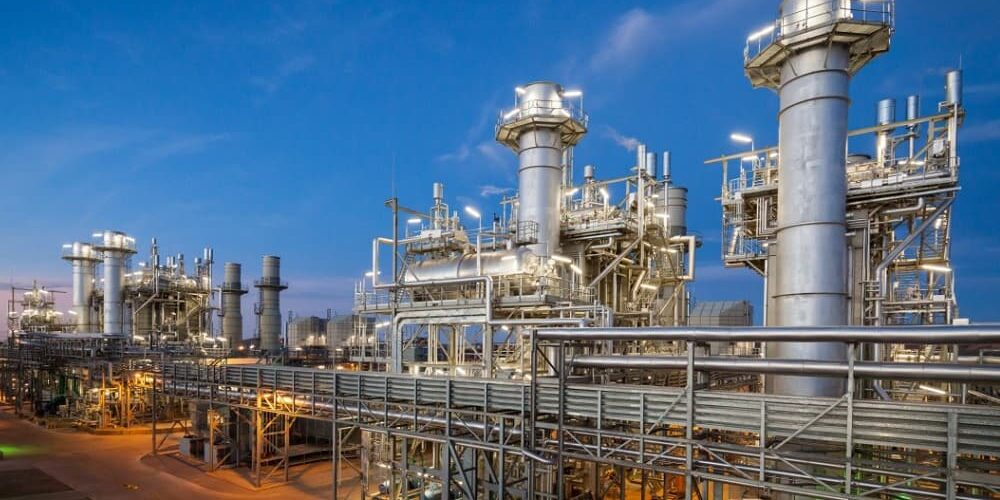Last fall, I wrote (https://bit.ly/3zPqScP) about the importance of African governments doing everything they could to encourage international oil companies (IOCs) to continue operating in their countries. IOCs play an important role in supporting economic growth, job creation, capacity building, and knowledge sharing.
Currently, two IOCs in particular — Azule Energy in Angola and Shell Petroleum Development Corporation of Nigeria (SPDC) — have tremendous promise to deliver those benefits on a long-term basis. Azule Energy, a newly formed independent joint venture of BP’s and Eni’s Angolan businesses, is now a huge player in the oil and gas industry. SPDC, the operator of a joint venture agreement among the Nigerian National Petroleum Corporation (NNPC), Shell, Total Exploration and Production Nigeria Limited, and Nigeria’s Agip Oil Company, is the largest Shell Company in Nigeria. The two companies’ potential to impact African economies is so significant that the African Energy Chamber features both of them in its newly released State of African Energy Q2 2022 Report.
Azule Energy and SPDC are hardly the only IOCs contributing to economic growth in our continent, but they are great examples of the long-term impact that international companies can have — and the need to create an enabling environment for them. I strongly encourage government leaders in Angola, Nigeria, and other oil- and gas-producing states to continue taking practical steps, from creating favorable fiscal policies to protecting companies’ assets from theft and vandalism, to encourage ongoing IOC activity.
A New Era in Angola
The joint venture between the Angolan businesses of UK oil major BP and Italian multinational Eni, finalized in early August, is big news in every sense. Azule Energy is now Angola’s largest independent equity oil and gas producer and, according to our report, is expected to be the country’s second-largest producer overall, behind only state-owned Sonangol. Our report projects that Azule will produce approximately 22% of Angola’s oil and gas output through 2025, surpassing even such industry giants as Chevron and TotalEnergies.
How much product are we talking about? Azule is projected to produce 250,000 net barrels of oil equivalent/day (boe/d) from Angola’s upstream sector by 2027, according to BP and Eni. Not only that, but the company has BP’s and Eni’s stakes in 16 exploration licenses, suggesting a long-term presence in Angola.
Azule will have an important role to play in growing Angola’s natural gas industry, too, as a participant in the New Gas Consortium (NGC). This joint venture was created by BP, Eni, Chevron affiliate Cabinda Gulf Oil Company Limited (CABGOC), TotalEnergies, and Sonangol in late 2019 to explore and produce gas in Angola and bolster economic growth there.
One of the consortium’s initial projects will be the development of the Quiluma and Maboqueiro gas fields, Angola’s first non-associated gas development project. The consortium partners announced a final investment decision on the fields earlier this summer. With first gas scheduled for 2026, the fields are expected to produce a combined total of approximately 4 billion cubic meters (bcm) of gas a year at their peak. The project also will supply gas to the Angola LNG (liquified natural gas) plant.
Azule Energy’s ongoing activity will have a tremendous impact on Angola’s people and businesses. The new joint venture’s natural gas activities alone with help meet domestic needs, beginning with new gas-to-power programs that will help deliver reliable electricity to more Angolans. The gas also can be used as feedstock for petrochemical plants, leading to more economic growth and diversification, and it can help meet the international community’s pressing need for natural gas, heightened since Russia invaded Ukraine.
An Example for Africa
Angola’s government leaders have played an important role in making all of this possible.
For example, under the leadership of Diamantino Pedro Azevedo, the Ministry of Mineral Resources Petroleum has made it a priority to encourage exploration and production activities. One avenue the ministry has taken has been to divest Sonangol, the national oil company, of non-core assets. That move gave Sonangol the necessary funds to focus on its upstream, midstream, and downstream businesses as an operator.
In Bayelsa State, Shell Nigeria Gas signed an agreement with the Nigerian Content Development and Monitoring Board, (NCDMB) to provide gas infrastructure
Angola also introduced licensing rounds several years ago. In February 2022, ANPG’s third bidding round resulted in proposals from TotalEnergies, Equinor, and Eni. As the energy chamber noted at the time, the introduction of the licensing rounds, coupled with fiscal reforms — including halving tax royalties and income tax requirements for marginal discoveries — have produced an uptick in international activity in Angola. And, it created the kind of environment that will encourage a long, healthy working relationship with Azule Energy.
SPDC’s Ongoing Role in Nigeria
In Nigeria, meanwhile, with more than 4 billion boe of reserve potential and capacity to maintain output at over 300,000 boe/d through 2035, SPDC remains very significant to the national economy. The company’s current portfolio, our report estimates, is worth at least USD 2 billion.
SPDC, which made its first Nigerian discovery in 1956, has been the subject of controversy, primarily due to oil spills in the Niger Delta region. But the company’s presence in Nigeria has impacted lives and communities for the better as well. In 2019, for example, the Nigerian Content Development and Monitoring Board (NCDMB) recognized Shell as the country’s most impactful IOC on local content initiatives. Not only is the company known for supporting local vendors and suppliers, but it also makes it a priority to employ local people. It recently estimated that 96% of its local workforce (currently totaling about 2,500 people) comprises Nigerians, and 66% are from the Niger Delta.
The chamber also is optimistic about SPDC’s plans to help transform Nigeria into a natural gas hub. SPDC’s country head/director of corporate relations, Igo Weli, said Shell companies are working with Nigeria’s federal government to build a network of gas plants and pipelines that could power industrial and commercial development and bolster liquified natural gas exports to meet global demand.
“In Bayelsa State, Shell Nigeria Gas signed an agreement with the Nigerian Content Development and Monitoring Board, (NCDMB) to provide gas infrastructure to the NCDMB industrial gas park in Polaku,” Weli said. “NCDMB estimates the park could generate over 30,000 local employment opportunities.”
Then there are the company’s educational and skill-building initiatives. The NNPC/Shell Cradle-to-Career scholarship is one example. Since 2010, 708 youths from the impoverished Niger Delta, where much of SPDC’s assets are located, benefited from the scholarship. The program covers the full cost of each beneficiary’s tuition, accommodation, books, clothing, toiletries, medical insurance, and visiting care for six years of secondary school. And during the last five years, 184 participants transitioned to SPDC’s university scholarship program.
Recently, Nigeria has been seeing increasing numbers of its IOCs divest from Nigerian assets —more than 25 oil production licenses in the Niger Delta Basin during the last 11 years. Shell did, in fact, plan to sell its onshore assets in Nigeria, too, to help it meet emissions reduction goals. However, the company put those plans on hold in June to comply with a Nigerian Supreme Court ruling, which said the company would have to wait until SPDC’s appeal in a 2019 oil spill case before selling Nigerian assets.
This would be a good time for government leaders to do as much as possible to make remaining in Nigeria more appealing to Shell after the court case concludes. One way they could do that would be to help the company significantly reduce the vandalism and oil thefts impacting its operations. As recently as this summer, the company said it had lost more than USD1 billion in revenue from the theft of crude and property vandalism in the states of Imo, Rivers, Abia, and Bayelsa in recent months.
This is an issue that should concern government as much as Shell, Weli said, because the thefts are directly responsible for most of SPDC’s oil spills.
“If over 90% (of) spills are caused by people with axes, saws, and even explosive weapons, then you are creating a problem that will eat up the budget you would have used for education, health, etc.,” he said. “If you break pipes and the pipes leads to spills and it is very expensive to clean up, and the government had to clean up for the environment to be safe for us, then you channel resources needed for other things to that.”
I realize that resolving the socioeconomic challenges contributing to these crimes, including unemployment and fuel shortages, is no easy task. Even so, Nigeria’s leadership should be doing as much as possible to help SPDC keep its assets safe in the short term so the opportunities the company is creating can strengthen local communities in the long run.
Worth the Time and Resources
Large international companies like SPDC and Azule Energy impact both national governments and small communities. They add to countries’ coffers, and they help young adults build the necessary skills for prosperous, rewarding futures.
The African Energy Chamber is optimistically watching both companies, and we hope to see more like them throughout the continent.
Making that happen, however, largely will be up to African governments. By creating operator-friendly policies, and working cooperatively to help IOCs address challenges, our leaders can help ensure far-reaching benefits for their countries and their people.
Distributed by APO Group on behalf of African Energy Week (AEW).
![]()




